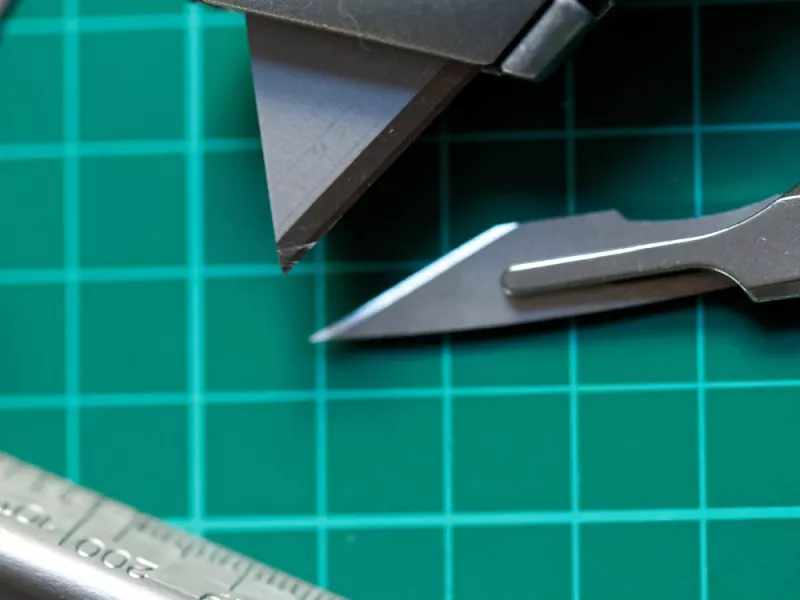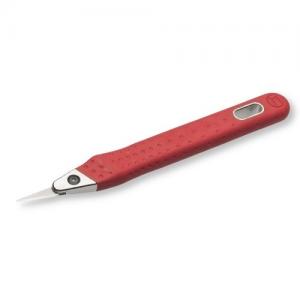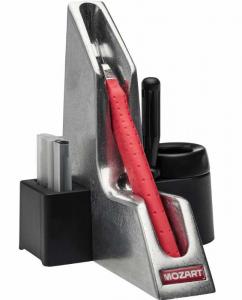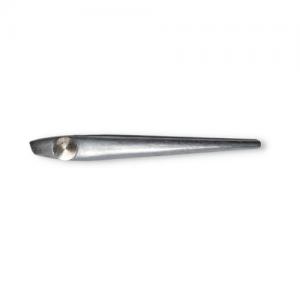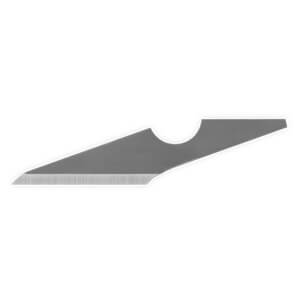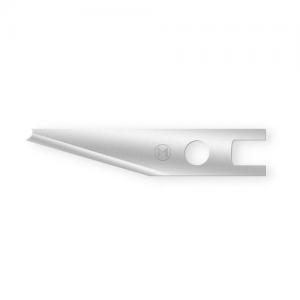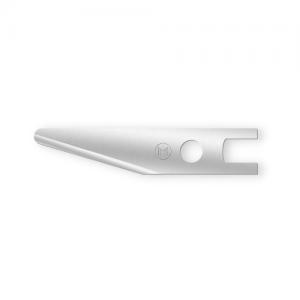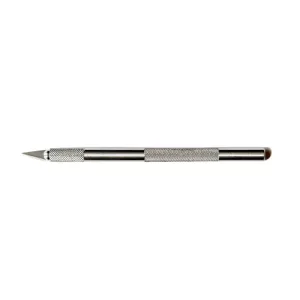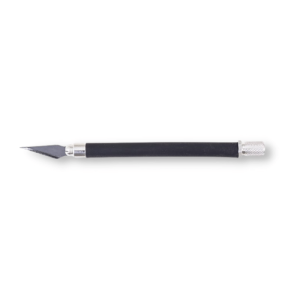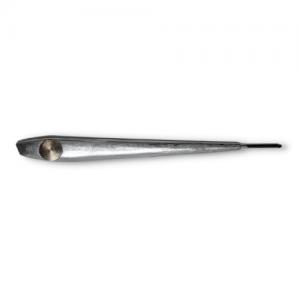Scalpels and Precision Knives for Industrial Use
Sollex supplies durable scalpels for industrial use
We received an inquiry from a customer about high-quality scalpel blades and whether they could also be used for cutting graded plastic parts. We thought it would be interesting to write on the topic of industrial applications of surgical scalpels and what we recommend in this case.
Are medical scalpels suitable for cutting hard materials?
It is generally not recommended to use medical scalpels for industrial purposes. Scalpel blades can be used for cutting e.g. graded plastic details, but it may not be the most efficient or effective tool for the job. Medical scalpel blades are typically designed for precise cutting on delicate materials, such as tissues or thin films, and may not be strong or durable enough to handle cutting through thicker plastic materials.
If you are cutting hard plastic material, for example, it is best to use a tool specifically designed for cutting plastic, such as a precision craft knife, utility knife or a rotary cutter with a sharp blade. These tools are designed for tougher and thicker materials, and they may be better suited for cutting graded plastic parts. There are also tools for deburring ceramic plastics, such as the Work Finisher WF-1540, which effortlessly deburr hard plastics without cutting your hands or fingers. It may also be helpful to use a cutting mat or other surface to protect your work surface and to provide a stable cutting surface.
Scalpels and precisions knives for industrial applications
It is generally best to use the appropriate type of craft scalpel for the task at hand. Industrial scalpels are specifically designed for heavy-duty cutting tasks and are usually made with stronger materials and thicker blades than medical scalpels. They are also often designed with additional features like ergonomic handles and replaceable blades for maximum efficiency and safety.
Non-sterile craft scalpels are almost always preferable for industrial use. If you seek higher durability, we would recommend trying our craft knives with belonging blades:
- Mozart precision knife 3F (2515)
- precision pen knife 500, 500G or a little bit bigger craft knife 501
- craft knife without awl (701)
These knives are much more robust than the medical scalpels, and for the Mozart 3F knife, we can develop coated blades for higher durability.
Use the precision knife instead of the medical scalpel
What is a precision knife? A precision knife is a type of cutting tool that is designed to provide precise and accurate cuts on a variety of materials. These knives are typically used in a variety of applications, including arts and crafts, model-making, and other precision cutting tasks.
Precision knives come in a variety of shapes and sizes, but they typically have a very sharp, pointed blade that can be used to make fine cuts and intricate shapes. The blade is usually replaceable, which allows the user to easily switch to a new blade when the current one becomes dull.
Precision knives may also be referred to as craft knives, hobby knives, or scalpels for craft. They are commonly used in fields such as graphic design, architecture, and engineering, as well as in hobbies such as scrapbooking and model-making.
In our assortment you can find the above mentioned Mozart precision knife 3F, which is ideal for cutting various materials. Different shapes of Mozart precision knife blades are available: F1, F2, F3, F4. Here in the category you will find the F1 with blunted end and the F4 with rounded end for safe cutting.
When using a precision knife, it is important to use caution and follow proper safety procedures to avoid injury. This includes using the knife on a stable surface, using the appropriate blade for the task at hand, and using protective gear such as gloves or a cutting mat.

